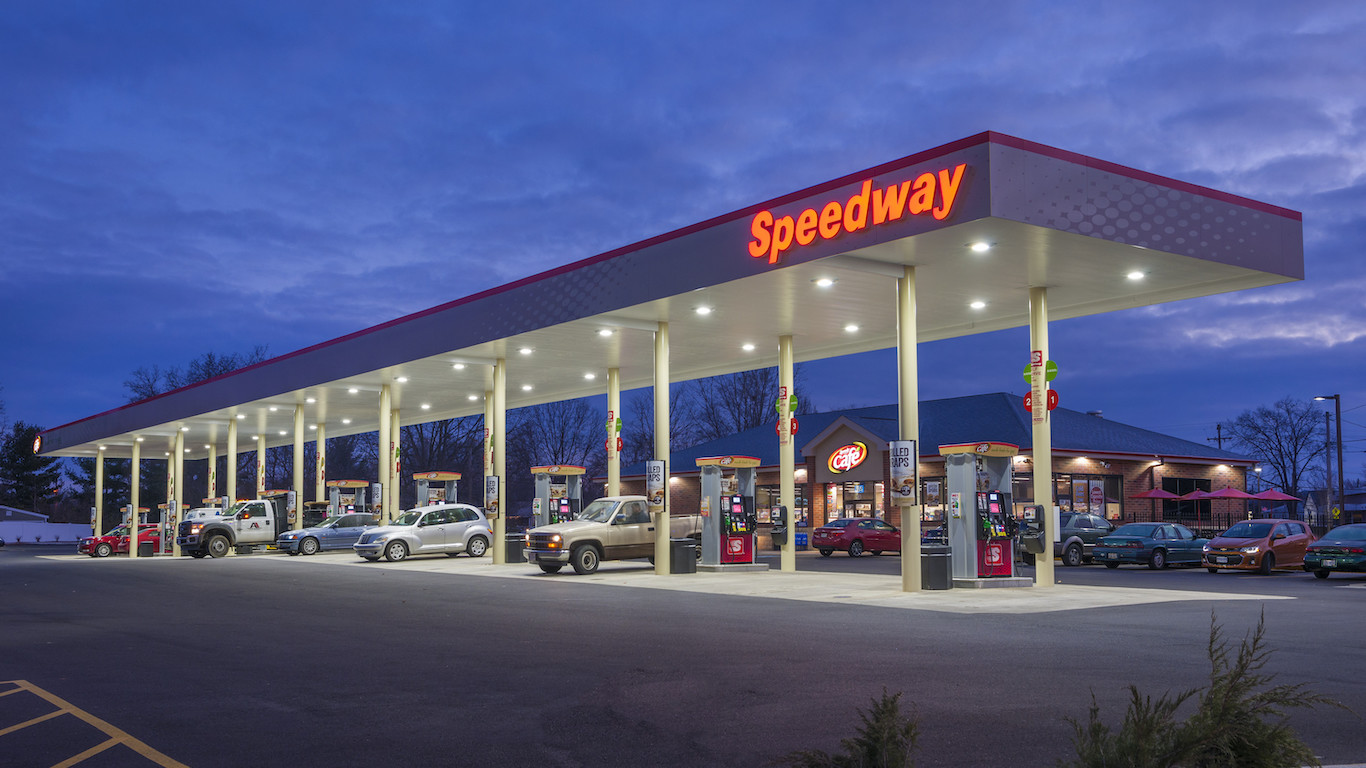
Marathon Petroleum Corp. (NYSE: MPC) announced Sunday that it has entered a definitive agreement with Japan’s Seven & i Holdings Co. Ltd, to sell Marathon’s Speedway retail stores to Seven & i’s U.S. subsidiary, 7-Eleven Inc., for $21 billion in cash. The acquisition adds about 3,900 Speedway stores to 7-Eleven’s current 9,800 U.S. locations.
According to the announcement, the sale “immediately captures value for MPC shareholders relative to potential valuation risks of other alternatives.” The sale is expected to net $16.5 billion for Marathon, and the company said it plans to use the proceeds to repay debt and to return capital to shareholders. The acquisition is expected to close in the first quarter of 2021.
One of those shareholders is Paul Singer’s Elliott Management, which last year increased its pressure on Marathon to unlock the value of the company by separating the Speedway stores into a publicly traded retail business, converting Marathon’s MPLX L.P. (NYSE: MPLX) pipeline MLP to a regular corporation, and creating a “New Marathon” as a standalone refiner.
The sale of the Speedway business comes just two days following Marathon’s announced the “indefinite idling” of two refineries. The Gallup, New Mexico, plant will be permanently closed and the Martinez, California, plant may be “strategically repositioned” as a renewable diesel facility. Marathon’s conversion of the Dickinson, North Dakota, oil refinery to a renewable diesel plant is expected to be completed late this year.
To end Marathon’s busy weekend, the company on Monday morning announced second-quarter results that were awful but less so than expected. The company reported an adjusted loss per share of $1.33 for the quarter, not as bad as the $1.75 loss analysts expected. Revenue totaled $15.2 billion, less than half the $33.7 billion reported in the same quarter a year ago.
Marathon’s net loss in its refining and marketing segment totaled $1.6 billion, while the Speedway retail segment posted net income of $494 million, essentially flat year over year. The company’s stake in MPLX posted net income of $869 million, down about 1% year over year.
Earlier this year, Elliott and hedge fund D.E. Shaw led a drive that resulted in the resignation of MPLX CEO Gary Heminger.
In Monday’s premarket session, Marathon Petroleum stock traded up nearly 10%, at $41.98 in a 52-week range of $15.26 to $69.65. The stock’s price target is $47.40, and Marathon pays a dividend yield of 6.07%.
Now that the Speedway stores have been shed, the activists could still force the conversion of MPLX to a corporation with the goal of selling off bits of the midstream business over time. As for a “new” Marathon, that’s likely to require cash, not deliver it to shareholders.
Take Charge of Your Retirement In Just A Few Minutes (Sponsor)
Retirement planning doesn’t have to feel overwhelming. The key is finding expert guidance—and SmartAsset’s simple quiz makes it easier than ever for you to connect with a vetted financial advisor.
Here’s how it works:
- Answer a Few Simple Questions. Tell us a bit about your goals and preferences—it only takes a few minutes!
- Get Matched with Vetted Advisors Our smart tool matches you with up to three pre-screened, vetted advisors who serve your area and are held to a fiduciary standard to act in your best interests. Click here to begin
- Choose Your Fit Review their profiles, schedule an introductory call (or meet in person), and select the advisor who feel is right for you.
Why wait? Start building the retirement you’ve always dreamed of. Click here to get started today!
Thank you for reading! Have some feedback for us?
Contact the 24/7 Wall St. editorial team.




